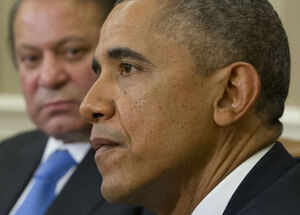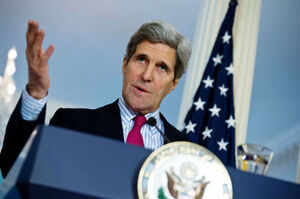
Pakistan hasn’t shared proof of Indian terror: US


A Pakistani delegation led by its foreign secretary which visited Washington recently with the pre-announced intent of bringing this to the notice of the Obama administration did not even utter a peep about it, suggesting such claims were made for domestic consumption. The US report said counter terrorism cooperation with Pakistan during 2014 was mixed, and Pakistan continued to deny visas for trainers focused on law enforcement and civilian counter terrorism assistance. Pakistan’s cooperation with the US on information sharing and law enforcement continues, but needs improvement with respect to kidnapped US citizens, it Delays in obtaining Pakistani visas for training personnel have been an obstacle to counter terrorism assistance for security forces and prosecutors, including assistance planned through the department of state’s anti-terrorism assistance program, most of which was redirected to other regional partners, it said. The report said India has deepened counter terrorism cooperation with the United States, highlighted by a September 30 summit between President Obama and Prime Minister Modi where both sides pledged greater cooperation in countering terrorist networks and in information sharing. The president and prime minister, it said, stressed the need for joint and concerted efforts against networks such as al-Qaida, LeT, Jaish-e-Mohammed, and the Haqqani Network and reiterated their call to bring perpetrators of the November 2008 terrorist attacks in Mumbai to justice. The report also said Indian officials have emphasized the government takes threats posed by ISIS seriously, even though only a small number of Indians are believed to have been recruited into the organization. “Given India’s large Muslim population, potential socio-religious marginalization, and active ISIL (ISIS) online propaganda efforts, there remains a risk of increased ISIL recruitment of Indian nationals,” the report warned. Critiquing India’s efforts to counter terrorism, it said plans were hampered by “poor inter-agency coordination and information sharing.” In addition, local police forces, led at the state level, have limited command and control capacity and suffer from poor training and equipment.
Source: WHN Media Network





